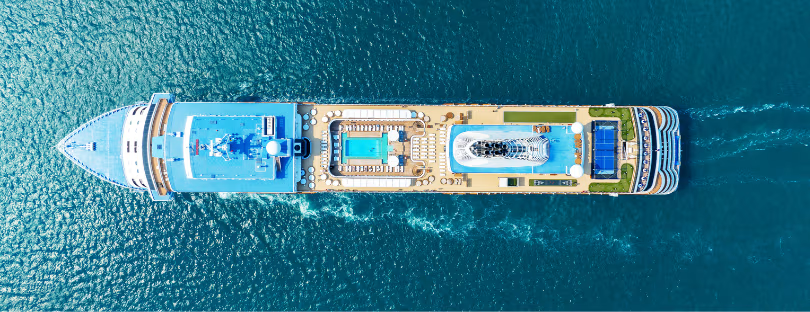
Navigating France Travel: Tips and Tricks for a Seamless Journey
France, a country renowned for its rich history, delectable cuisine, and stunning landscapes, is a dream destination for many travelers. However, as with any foreign journey, traveling to France can present its own set of challenges. France Travel Tips
This comprehensive guide aims to help you navigate France travel effectively, offering practical tips and tricks for a seamless journey. Whether you’re wondering about transportation options or curious about French etiquette, this article has got you covered.
Understanding the French Culture and Etiquette
Any successful journey begins with understanding the local culture and etiquette. In France, polite expressions such as “Bonjour” (Hello) and “Merci” (Thank you) are highly appreciated. It’s also customary to greet people with a light kiss on both cheeks. Additionally, punctuality is highly valued in formal settings, so ensure you’re on time for any scheduled events or reservations.
When it comes to dining etiquette, remember to keep your hands on the table (but not your elbows), and always say “Bon appétit” before starting a meal. Also, tipping is not obligatory in France as a service charge is included in your bill, but leaving small change is always a nice gesture.
Getting Around: Transportation Tips France Travel Tips
France boasts an efficient and extensive transportation network. The country’s high-speed trains (TGV) connect major cities, making it easy to travel across the country. If you’re planning to use public transportation frequently, consider getting a transport pass like the Paris Visite travel card for unlimited travel within certain zones.
For those who prefer driving, renting a car is a viable option. However, be aware of France’s strict driving rules and remember that the French drive on the right side of the road. Alternatively, biking is a popular mode of transport in cities like Paris and Nice, with numerous bike rental services available.
Accommodation: Where to Stay
From luxury hotels to charming bed and breakfasts, France offers a wide range of accommodations to suit every traveler’s needs and budget. When choosing where to stay, consider factors such as location, amenities, and customer reviews. Booking platforms like Booking.com or Airbnb can provide valuable insights into different accommodations.
If you’re traveling during peak season (July and August), it’s advisable to book your accommodation well in advance. For budget travelers, consider staying in hostels or vacation rentals which often offer kitchen facilities where you can prepare your own meals to save money.

Food and Dining: Experiencing French Cuisine
No trip to France would be complete without indulging in the country’s world-famous cuisine. From croissants and escargot to coq au vin and ratatouille, French food is as diverse as it is delicious. When dining out, don’t hesitate to ask the waiter for recommendations – they’ll be more than happy to help you navigate the menu.
Remember that meal times in France may be different from what you’re used to. Lunch is typically served from 12 pm to 2 pm, while dinner is served from 7 pm onwards. Also, many restaurants close on Sundays, so be sure to check opening hours in advance.
Sightseeing: Exploring French Landmarks
France is home to a plethora of iconic landmarks, from the Eiffel Tower and Louvre Museum in Paris to the Palace of Versailles and Mont Saint-Michel. To avoid long lines at popular attractions, consider purchasing skip-the-line tickets or visiting early in the morning or late in the afternoon when it’s less crowded.
However, don’t limit yourself to the well-known sights. Part of the charm of France lies in its quaint villages, local markets, and lesser-known museums. Be sure to leave some room in your itinerary for spontaneous exploration. Find out more about things to do in France here.
Communication: Staying Connected France Travel Tips
Staying connected while traveling in France is essential, not only for sharing your experiences but also for accessing useful information like maps and travel updates. While public Wi-Fi is often available in hotels and cafes, it’s not always reliable or secure. Therefore, consider investing in a local SIM card or a global roaming solution. One such solution is Alertify, which offers cost-effective international roaming services. With Alertify, you can enjoy seamless connectivity across France without worrying about exorbitant roaming charges. It’s an easy-to-use solution that ensures you’re always connected, helping to make your France travel experience smooth and hassle-free.
Money Matters: Budgeting and Spending France Travel Tips
The official currency of France is the Euro (€). Credit cards are widely accepted, but it’s always a good idea to carry some cash for small purchases. ATMs are readily available throughout the country for cash withdrawals.
When it comes to budgeting for your trip, keep in mind that prices can vary significantly between regions. Major cities like Paris and Nice tend to be more expensive than rural areas. Plan your budget accordingly and consider using budgeting apps to keep track of your expenses.
Conclusion: Final Checklist for a Seamless Journey
Navigating France doesn’t have to be daunting. With a little preparation and understanding of local customs and practices, you can enjoy a seamless and enriching journey. Remember to respect the local culture, plan your transportation and accommodation in advance, indulge in culinary delights, explore beyond the beaten path, and manage your budget effectively.
So pack your bags, brush up on your French, and get ready for an unforgettable adventure. Bon voyage!















